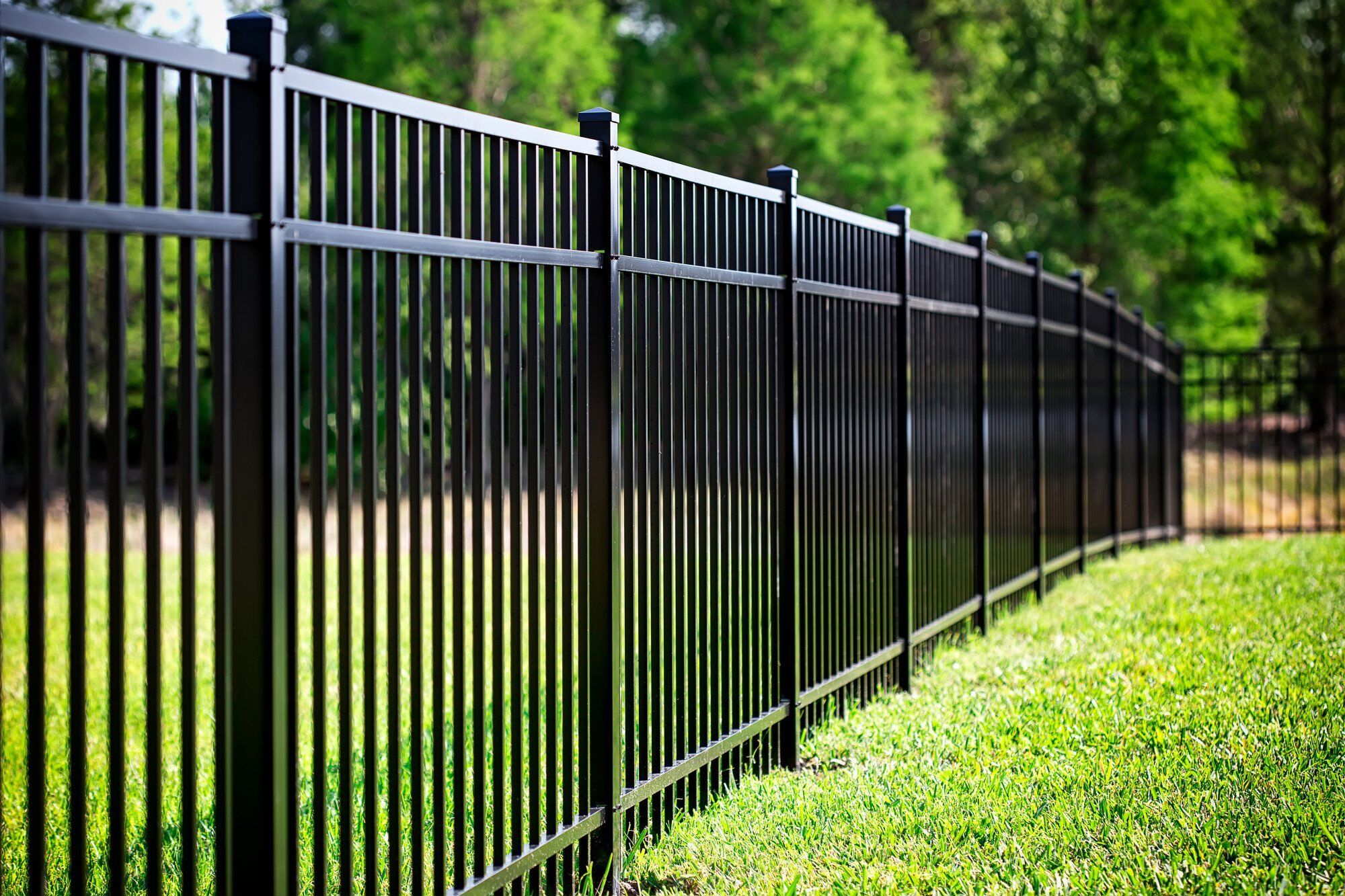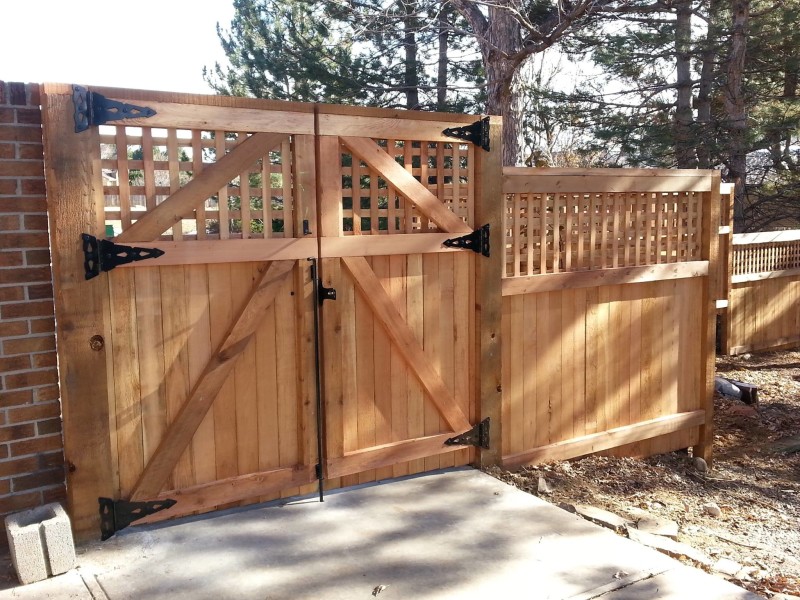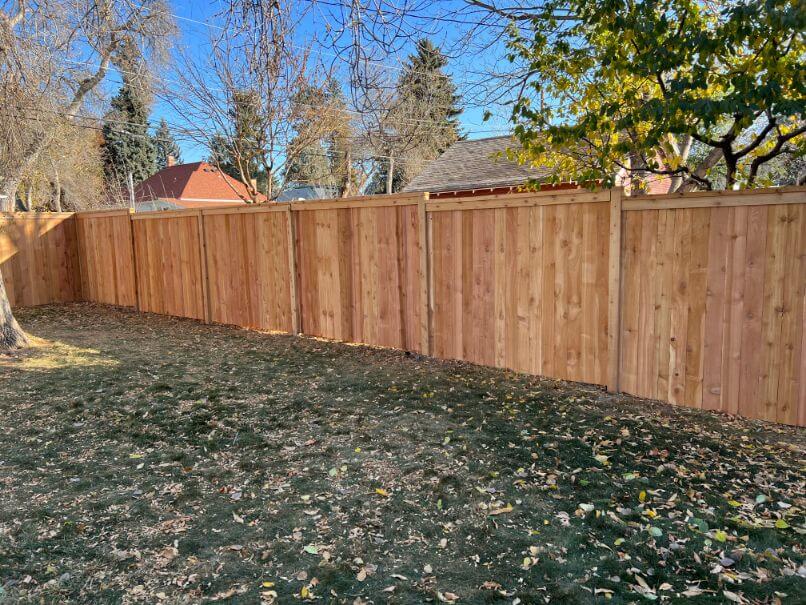All Categories
Featured
What Sorts Of Fence Products Are Available for Residential and Commercial Projects?
Fencing is a flexible and functional addition to any home, supplying protection, personal privacy, and visual charm. Selecting the ideal product depends on the details needs of your commercial or household project. Allow's explore the most popular fence materials and what makes each ideal for various applications.- Timber Fence. A perennial favorite, timber secure fencing offers a ageless and all-natural look that suits different residential or commercial property types.
Benefits:
Convenience: Readily available in designs like split-rail, picket, and privacy fences. Personalized: Can be stained or repainted to match your design. Economical: An affordable choice for many property owners. Limitations: Routine upkeep is necessary to secure versus rot, bending, and pests.
- Plastic Fence. Plastic has actually become a go-to choice for those that desire low-maintenance, durable fence.
Benefits:

Weather Resistant: Handles severe temperature levels and moisture without weakening. Low Upkeep: No need for painting or staining; periodic cleaning is sufficient. Variety: Can be found in numerous colors and appearances, consisting of wood-like finishes. Downsides: The upfront expense is higher, yet long-lasting savings on upkeep can offset this.
- Chain-Link Fencing. Practical and affordable, chain-link fence is excellent for securing big areas like industrial sites or play grounds.
Benefits:
Affordability: One of the least expensive fence choices. Durability: Immune to weather and physical damage. Customizable: Can include privacy slats or finishings for a refined appearance. Factors to consider: Deals minimal personal privacy unless supplemented with additional functions.
- Light weight aluminum Fence. Recognized for its modern-day and streamlined appearance, light weight aluminum is a popular choice for property and business buildings.
Trick Features:
Rust-Free: A best remedy for moist environments. Lightweight: Easier to mount contrasted to steel or iron. Ornamental: Usually utilized to reproduce the appearance of wrought iron. Limitations: Not as solid as steel, making it much less suitable for high-security needs.
- Wrought Iron Fencing. Wrought iron combines beauty with strength, making it a costs option for high end properties.

Advantages:
Adjustable Designs: Includes a sophisticated, one-of-a-kind touch to any type of home. Outstanding Sturdiness: Stands the test of time with proper upkeep. Safety: Difficult to breach or harm. Difficulties: High cost and the need for regular maintenance to avoid rust.
- Compound Secure fencing. Composite fencing, made from a mix of wood fibers and plastic, is a green choice with the appearance of natural wood.
Benefits:
Eco-Friendly: Typically made from recycled materials. Longevity: Immune to weather, rot, and pest damages. Reduced Maintenance: Requires little maintenance compared to typical wood. Drawbacks: Higher first prices compared to basic timber fencing.
- Steel Fencing. Steel fence is a durable option for residential or commercial properties requiring maximum protection.
Features:

Long lasting: Withstands significant physical and ecological tension. Adjustable Coatings: Powder layer boosts its resistance to corrosion. Security-Focused: Suitable for risky or industrial locations. Factors to consider: Heavier and a lot more costly than light weight aluminum.
- Bamboo Secure fencing. For eco-conscious tasks, bamboo uses a sustainable yet elegant option.
Benefits:
Ecologically Friendly: Bamboo regenerates quickly, making it eco-friendly. Unique Visual: Includes a natural, exotic touch to your residential or commercial property. Cost-efficient: Usually cheaper than hardwood choices. Challenges: Much less durable in wet climates and might require treatments for longevity.
- Masonry and Rock Fence. For a genuinely long-term remedy, stone or block secure fencing offers unparalleled sturdiness and visual charm.
Key Includes:
Durability: Lasts for decades with minimal maintenance. Sound Reduction: Perfect for residential properties near busy roadways. Elegant Look: Produces a magnificent and lavish look. Disadvantages: High installment costs and minimal versatility for adjustments.
Selecting the Right Secure Fencing Material. When choosing secure fencing for your building, consider the list below elements:
Purpose: Determine whether you prioritize personal privacy, protection, or looks. Spending plan: Some materials, like timber and chain-link, are much more affordable, while others, like rock or wrought iron, need a bigger investment. Upkeep Demands: Products like plastic and aluminum are low-maintenance, while wood and iron need even more treatment. Neighborhood Environment: Pick a product that withstands your region's weather. Final thought. From the rustic allure of wood to the modern-day sophistication of light weight aluminum, there's a fence material for every business or domestic job. Each option provides unique advantages, so understanding your property's details needs will certainly help guide your decision. Consult a professional fencing contractor to explore layouts, products, and setup choices to bring your vision to life.
Latest Posts
Find Leading Car Repair Care offered by Montclare Auto Repair – Quality Service Today
Published May 31, 25
1 min read
Find Best Auto Repair Services offered by Montclare Auto Repair – Drive with Confidence
Published May 27, 25
1 min read
Why Routine Vehicle Maintenance at Montclare Auto Repair Keeps Your Wallet Happy
Published May 26, 25
1 min read
More
Latest Posts
Find Leading Car Repair Care offered by Montclare Auto Repair – Quality Service Today
Published May 31, 25
1 min read
Find Best Auto Repair Services offered by Montclare Auto Repair – Drive with Confidence
Published May 27, 25
1 min read
Why Routine Vehicle Maintenance at Montclare Auto Repair Keeps Your Wallet Happy
Published May 26, 25
1 min read